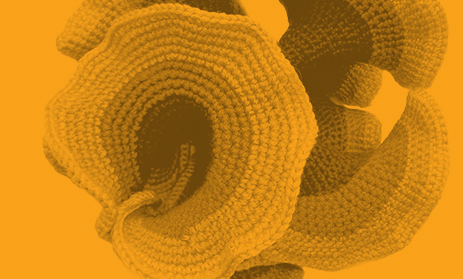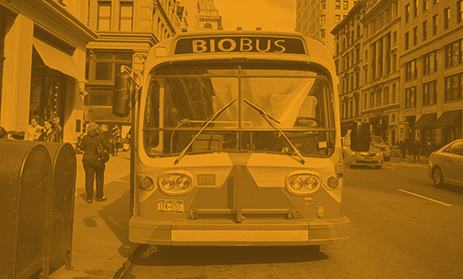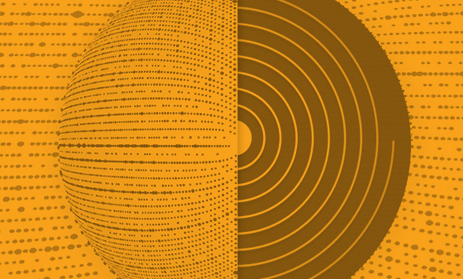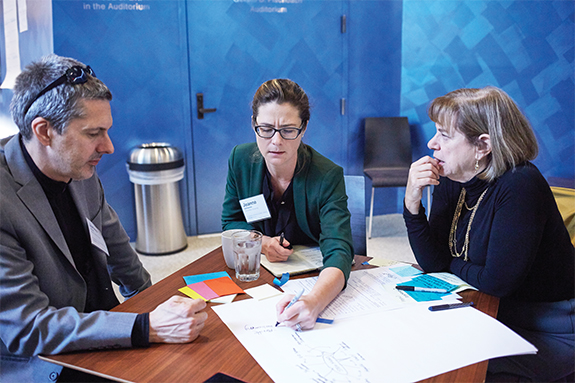
Rarely, if ever, do you hear an educated person say, "I can't read." However, that same person might without hesitation admit that he or she "doesn't get" science or "isn't a math person." And "I'm no scientist" is a refrain, intended to mock empirical evidence, that we hear with alarming frequency from individuals of influence.
These and similar challenges to the public's relationship with science
set the agenda for an ambitious two-day gathering at the Simons Foundation on
October 26-27, 2015, called Accelerating Science & Math Literacy: An Ideas Workshop.
"How did it become acceptable for so many Americans to profess math and science illiteracy when none of us would find it acceptable to live in a society where many couldn't read or write?" asked Boyana Konforti, director of the Education & Outreach division at the Simons Foundation, during the welcome keynote. In designing the workshop, the Education & Outreach team took a collaborative step toward its goal of bringing scientific thinking to all parts of society by engaging people with the process of science. The team invited scientists, science communicators, policymakers and educators, among others, to the foundation for intensive brainstorming, refinement and iteration of ideas.
"We hope that by bringing everyone together — with their different experiences and perspectives — we can develop and move forward with ideas that none of us could have imagined alone," Konforti told workshop attendees. "But before we can do that, we need to take a step back and ask what it means to be science and math literate."
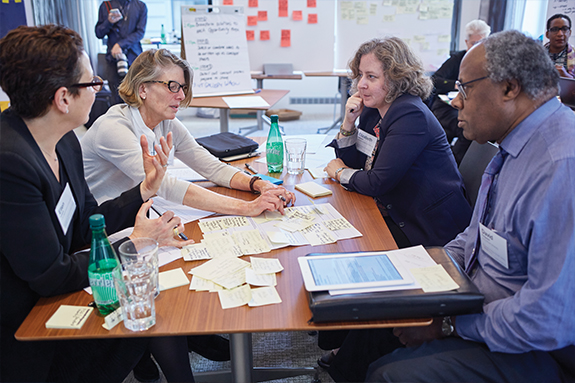
Indeed, participants began wrestling with this query before the meeting even started. "Science isn't just about the scientific method and a list of facts. It is the tool kit that you want society to adopt," wrote David Ng, director of the Advanced Molecular Biology Laboratory at the University of British Columbia, in a preliminary assignment given to participants ahead of the meeting.
As part of that assignment, Konforti asked participants what a science-and-math-literate society — one that minimizes people's perception of science and math as something difficult and elitist — would look like. Stuart Firestein, professor of neuroscience at Columbia University, volunteered that such a society would foster "an appreciation for the narrative of science, the process of science, the perspective of science."
It would be "a society where science and scientific thinking are assumed to be part of the normal way of doing things," wrote Ben Lillie, co-founder of the live science show and podcast series The Story Collider.
During the event, attendees worked in small groups, brainstorming new strategies to present science to the public not as a set of facts but as a tool: a lens through which to view the world. Many of the ideas focused on creative ways to broaden and reframe what it means to be a scientist, and to do science. Encouraging society to 'think like a scientist' and critically assess new information with healthy skepticism, attendees argued, could have a lasting and profound impact on human health, the environment and innovation.
The working groups then shared their ideas with everyone at the workshop. Their presentations, followed by a lively question-and-answer period, allowed
participants to give and receive pointed feedback, which helped to make each initiative stronger and more attainable. "It was, without question, one of the
most productive meetings I have attended, maybe ever," says Donna Cohen Ross, who
was a senior policy adviser at the U.S. Department of Health and Human
Services at the time of the meeting.
Konforti says she is grateful for the hard work of the attendees, and inspired by their innovative ideas for making scientific thinking part of everyday
life. Her team's next step is to put some of those ideas into action; programs that foster scientific learning in informal and unexpected ways will become
a specific focus and
grant-making priority.



